A total of 20 former and current elected Republicans are named in Peter Schweizer’s new bestseller Red-Handed: How American Elites Get Rich Helping China Win as having business dealings and political ties to the United States’ largest adversary, China.
Senate Minority Leader Mitch McConnell (R-KY)
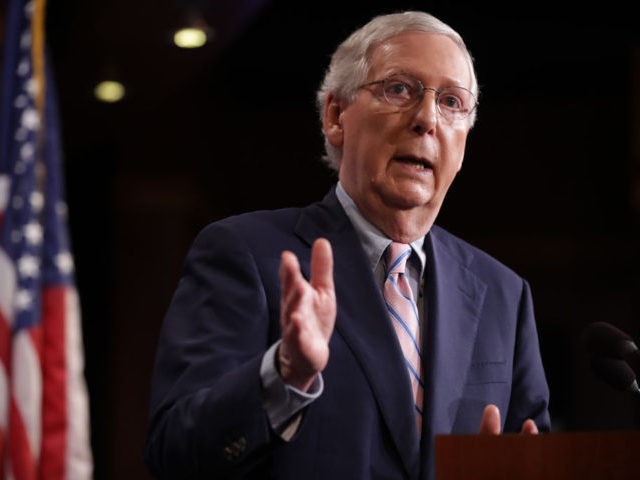
Senate Majority Leader Mitch McConnell (R-KY) talks to reporters at the U.S. Capitol on October 6, 2018, in Washington, DC. (Chip Somodevilla/Getty Images)
Sen. Mitch McConnell (R-KY) and his wife, former President Trump’s Department of Transportation Secretary Elaine Chao, “enjoy some of the deepest and most abiding ties to Beijing- linked entities of anyone in Washington, D.C.,” Schweizer writes.
Those ties mostly stem from Chao’s fathers’ massive shipping business, the Foremost Group, which has built the family’s fortune by sharing a close financial relationship with China-owned companies like the China State Shipbuilding Corporation (CSSC).
After McConnell visited Beijing, China in 1993, alongside Chao, the Foremost Group received 10 mammoth ships from China-owned companies between 2001 to 2011.
“There can be little doubt that the McConnell-Chao family business fortunes could be disrupted overnight if Beijing looked with too much disfavor at the policy positions he takes toward China,” Schweizer notes.
Former President George H.W. Bush and former Florida Gov. Jeb Bush
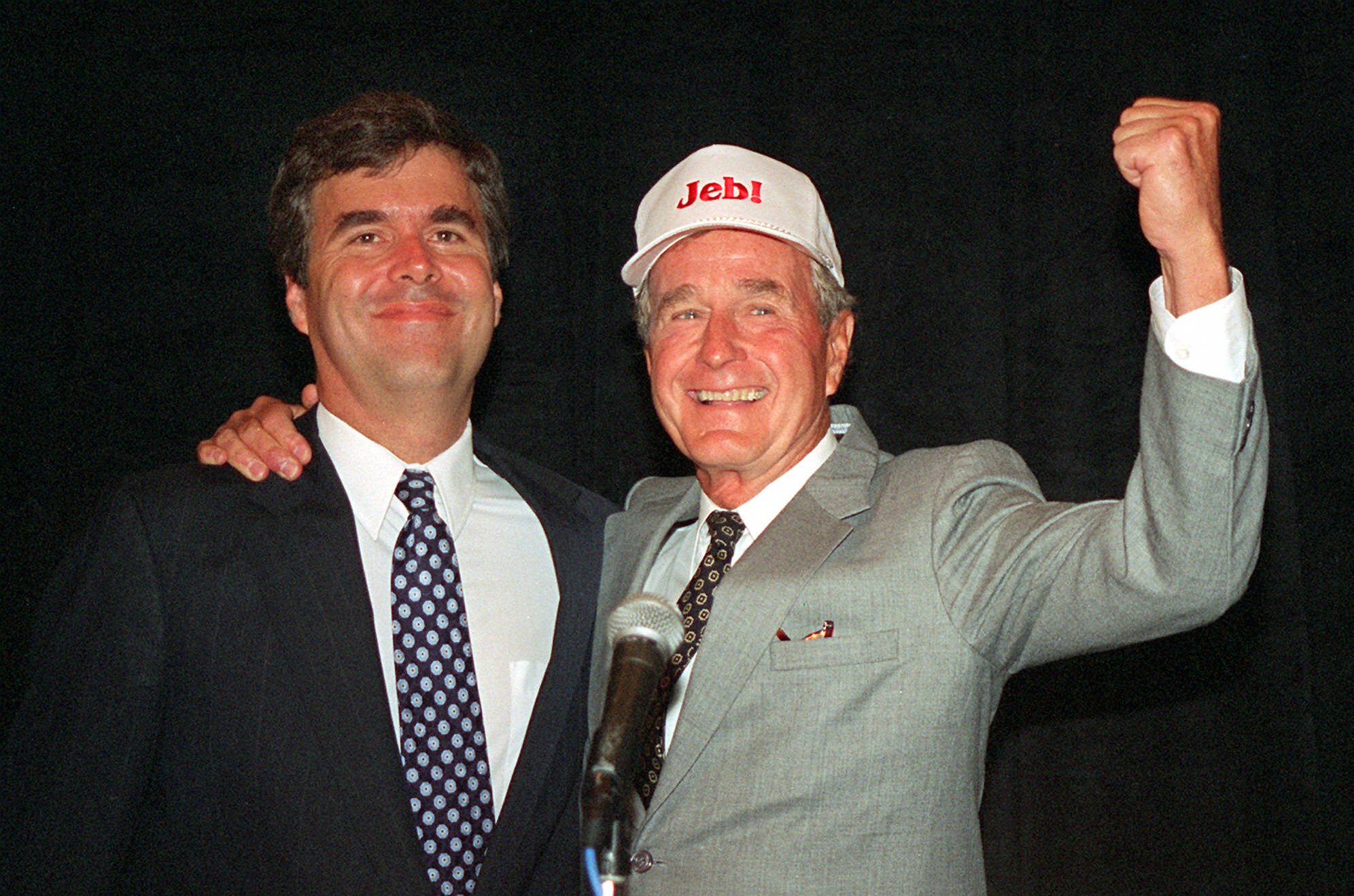
Former President George H.W. Bush, right, clenches his fist as he hugs son Jeb during a Florida GOP fund-raiser in Tampa on September 16, 1994. (AP Photo/Chris O’Meara)
The Bush family’s ties to China began before former President George H.W. Bush became vice president to former President Ronald Reagan but flourished when he became Commander in Chief.
Prescott Bush, Bush Sr.’s brother, met with Chinese officials in Beijing in February 1989 just days before the president was set for an official visit. Prescott’s meeting helped close the deal to build a golf club in Shanghai, China for non-Chinese business executives when they were visiting the country.
Prescott also met with Chinese officials, on that same trip, to push for the creation of a communications network across China. Prescott was trying to secure the deal on behalf of New York-based Asset Management International Financing and Settlement Ltd. which had been paying him $250,000 a year.
Months later in 1989, Bush Sr. lifted U.S. restrictions on exporting satellite technologies to China — a boon for Prescott’s client, Asset Management. Prescott would later launch the U.S.-China Chamber of Commerce (USCCC) which exists to this day and has sought to further tether the U.S. economy to China.
When former President George W. Bush entered the Oval Office, Schweizer writes that “a new generation of Bushes began securing deals with Chinese officials” including Bush’s brothers, Neil Bush Jeb Bush.
Neil, for example, scored a $400,000 annual salary working for the Chinese company Grace Semiconductor Manufacturing which had deep political ties in China. Neil also a China-linked firm called the Interlink Management Corporation.
Jeb, in 2013 after leaving office, began meeting with a number of Chinese business executives. Later, he created Britton Hill Holdings and raised $26 million to invest in a liquid petroleum shipping company backed by the China-based HNA Group “with close ties to Beijing’s “red aristocracy,’” Schweizer writes.
Former Speaker of the House John Boehner (R-OH)
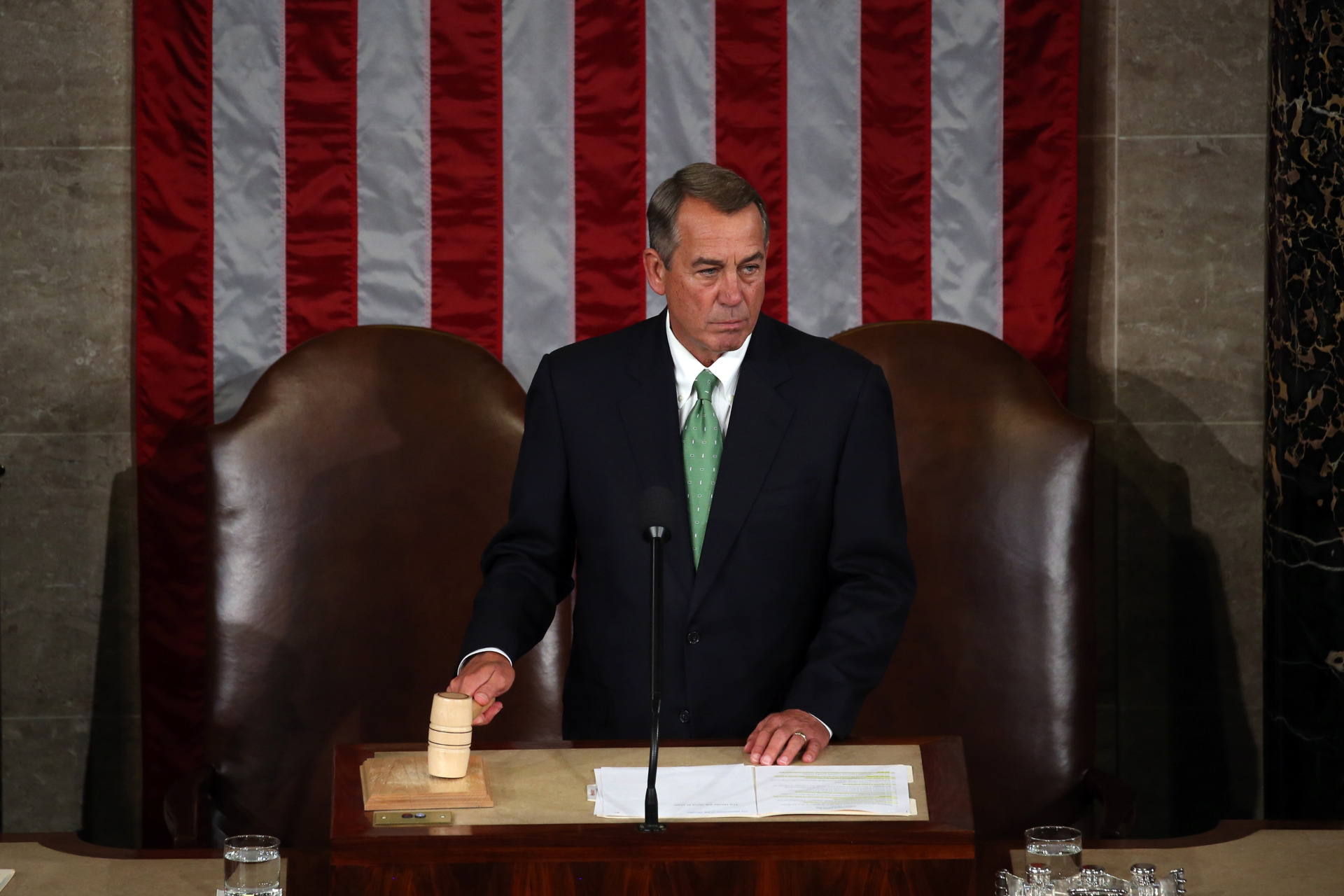
Speaker of the House John Boehner (R-OH) on September 24, 2015. (Mark Wilson/Getty Images)
While Speaker of the House, former Rep. John Boehner (R-OH) “took positions and actions that were highly beneficial to Beijing,” Schweizer writes.
Particularly, in 2011, Boehner single-handedly blocked legislation that would have held China to account for its years of currency manipulation after the Chinese embassy in Washington, D.C. deployed the lobbying firm, Squire Patton Boggs, to lobby lawmakers against the bill. Boggs was paid $35,000 to block the legislation.
“It’s a pretty dangerous thing to be moving legislation through the U.S. Congress forcing someone to deal with the value of a currency,” Boehner said at the time.
After leaving office in 2015, Boehner became a “strategic advisor” for Boggs. The firm, Schweizer writes, is “one of the most powerful in the United States, has deep and abiding ties to the Chinese government.”
“Beyond representing the Chinese government, Boehner’s firm also has a wide array of Chinese government-linked corporate clients that it lobbies for in Washington,” Schweizer writes. “These include ChemChina, China Railway Rolling Stock Corporation, Huawei, and Wanhua Chemical Group.”
Former Mississippi Gov. Haley Barbour
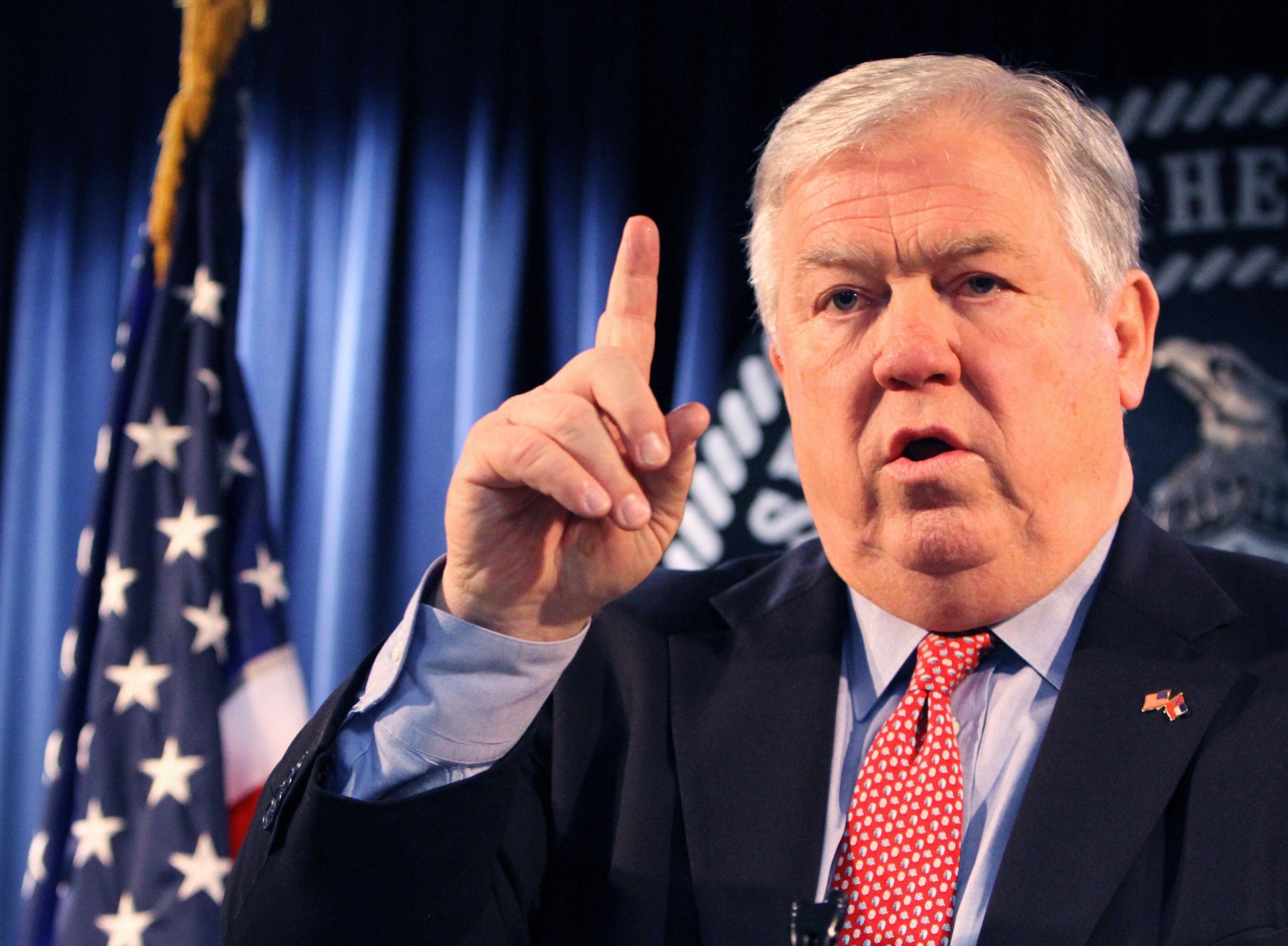
Gov. Haley Barbour at a news conference in Jackson, Mississippi, on January 22, 2010. (AP Photo/Rogelio V. Solis)
One of China’s “most effective organizations cultivating Chinese interests on Capitol Hill,” known as the China-U.S. Exchange Foundation (CUSEF),” signed former Mississippi Gov. Haley Barbour’s lobbying firm BGR Group as a client.
CUSEF, founded by Chinese billionaire Tung Chee-hwa who has close ties to the Chinese Communist Party, has paid Barbour’s BGR Group about $370,000 to lobby on its behalf.
Former Sen. David Vitter (R-LA)
Continue reading: Breitbart.com


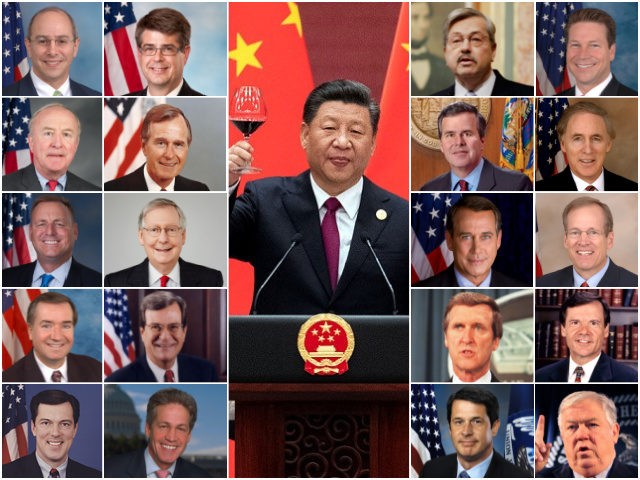



Leave a Reply